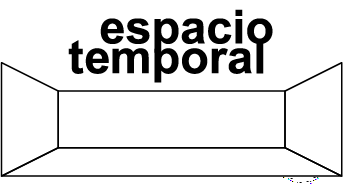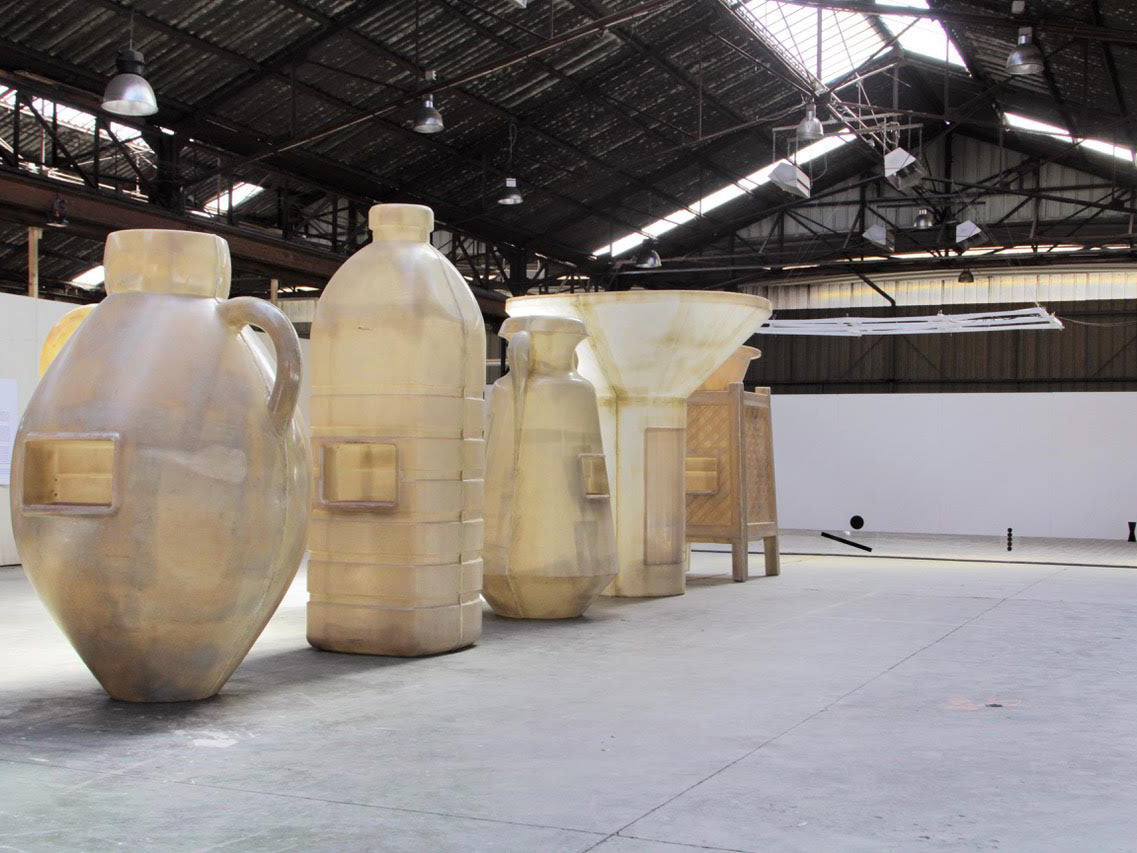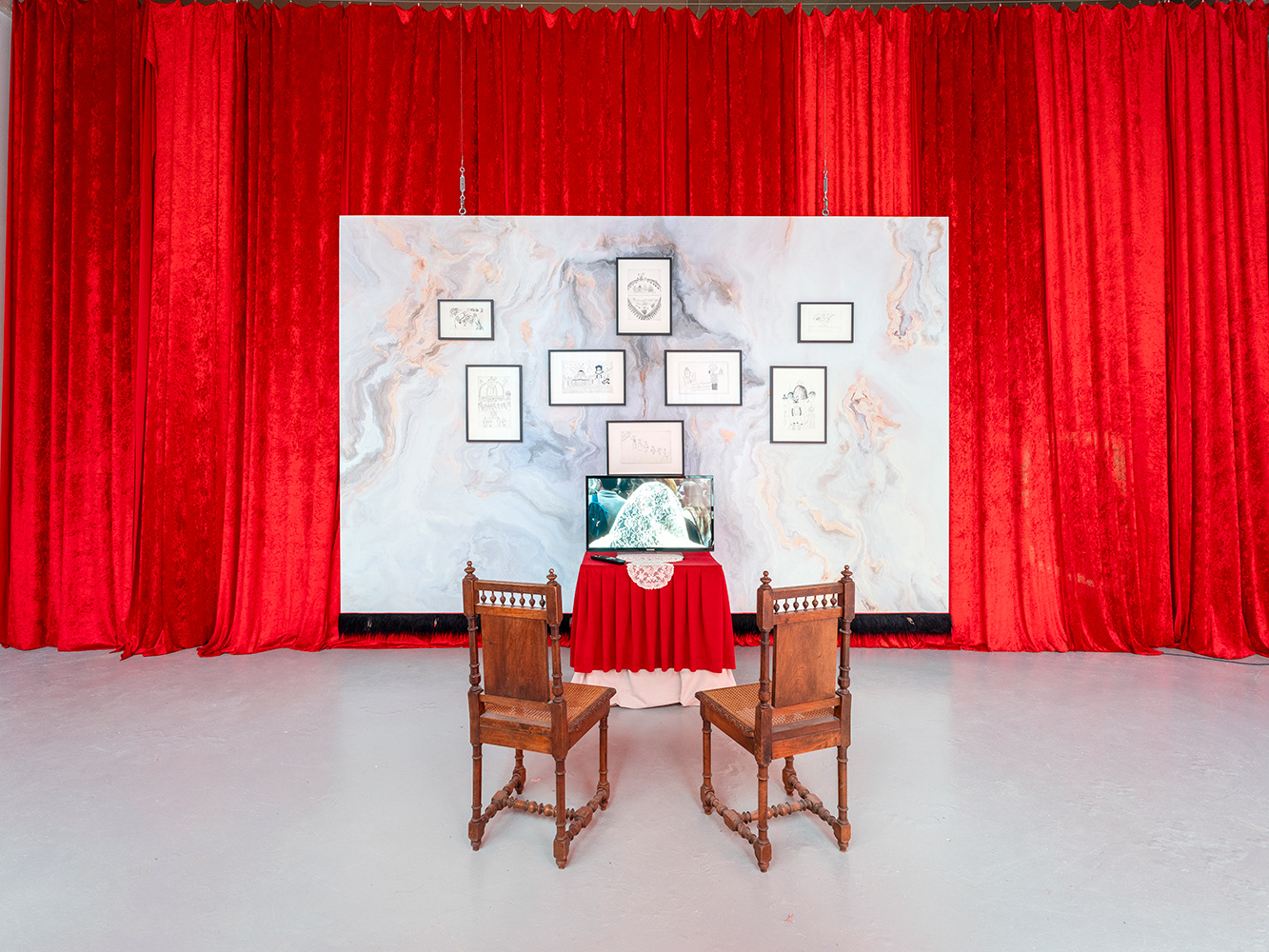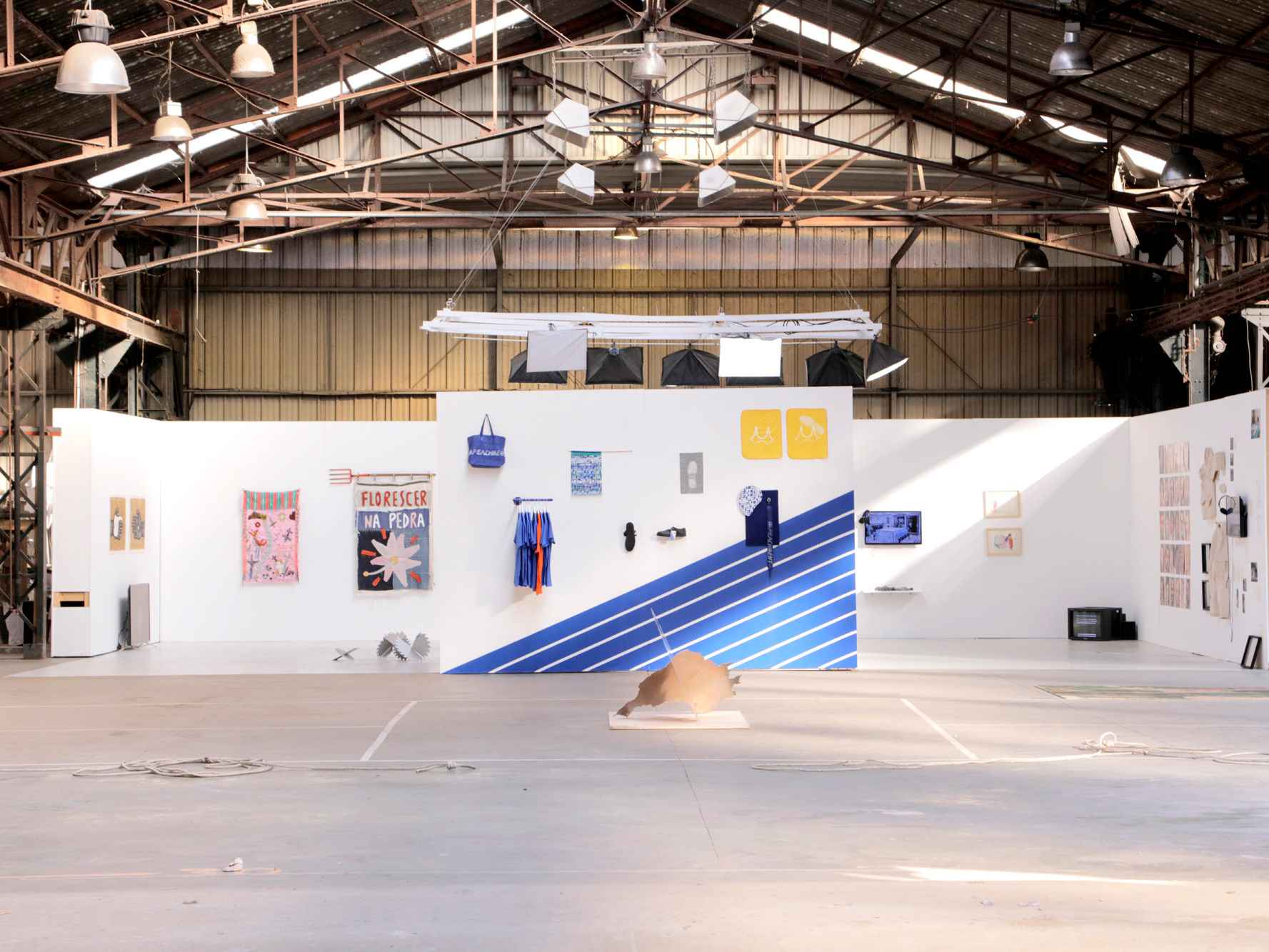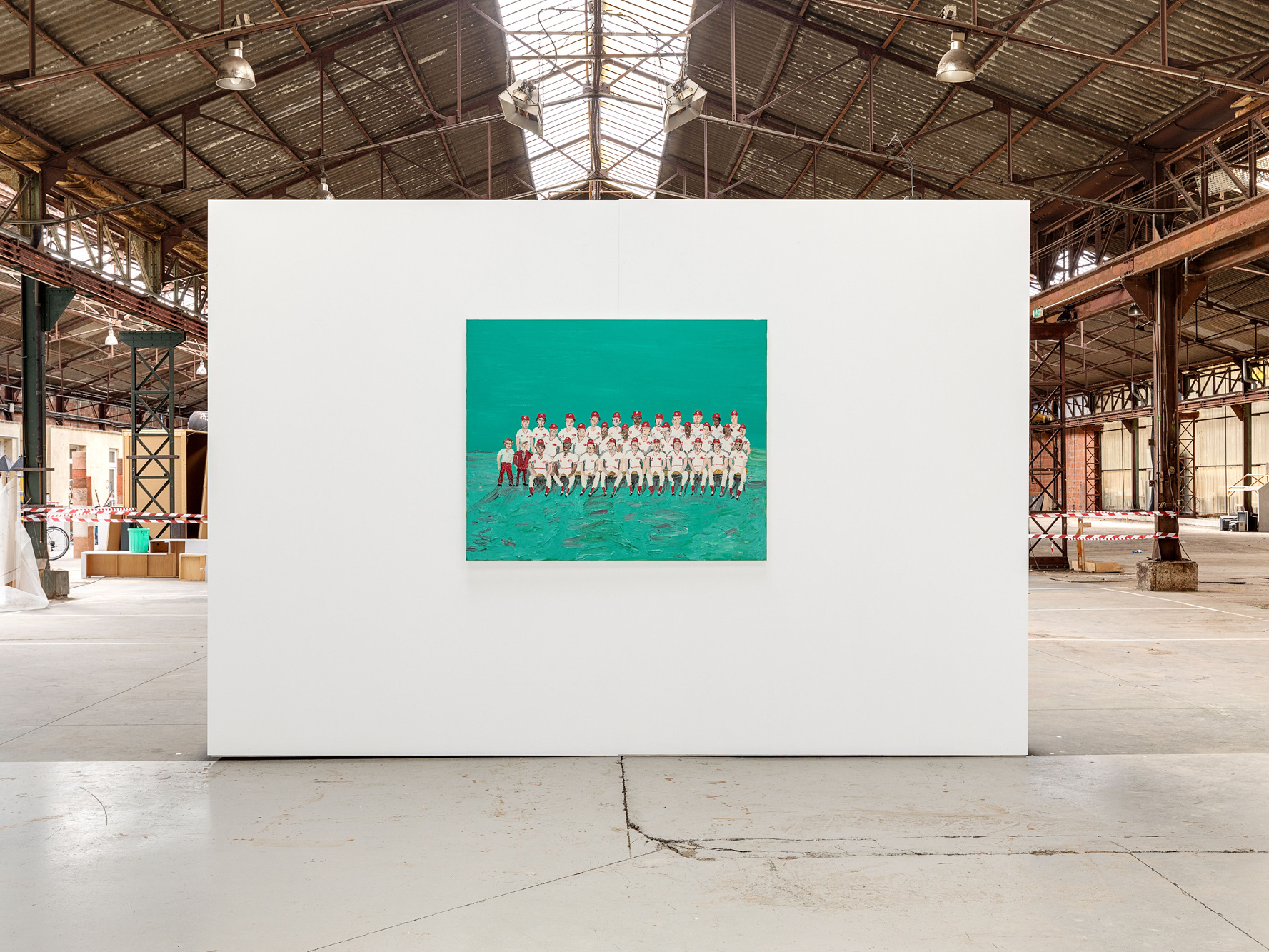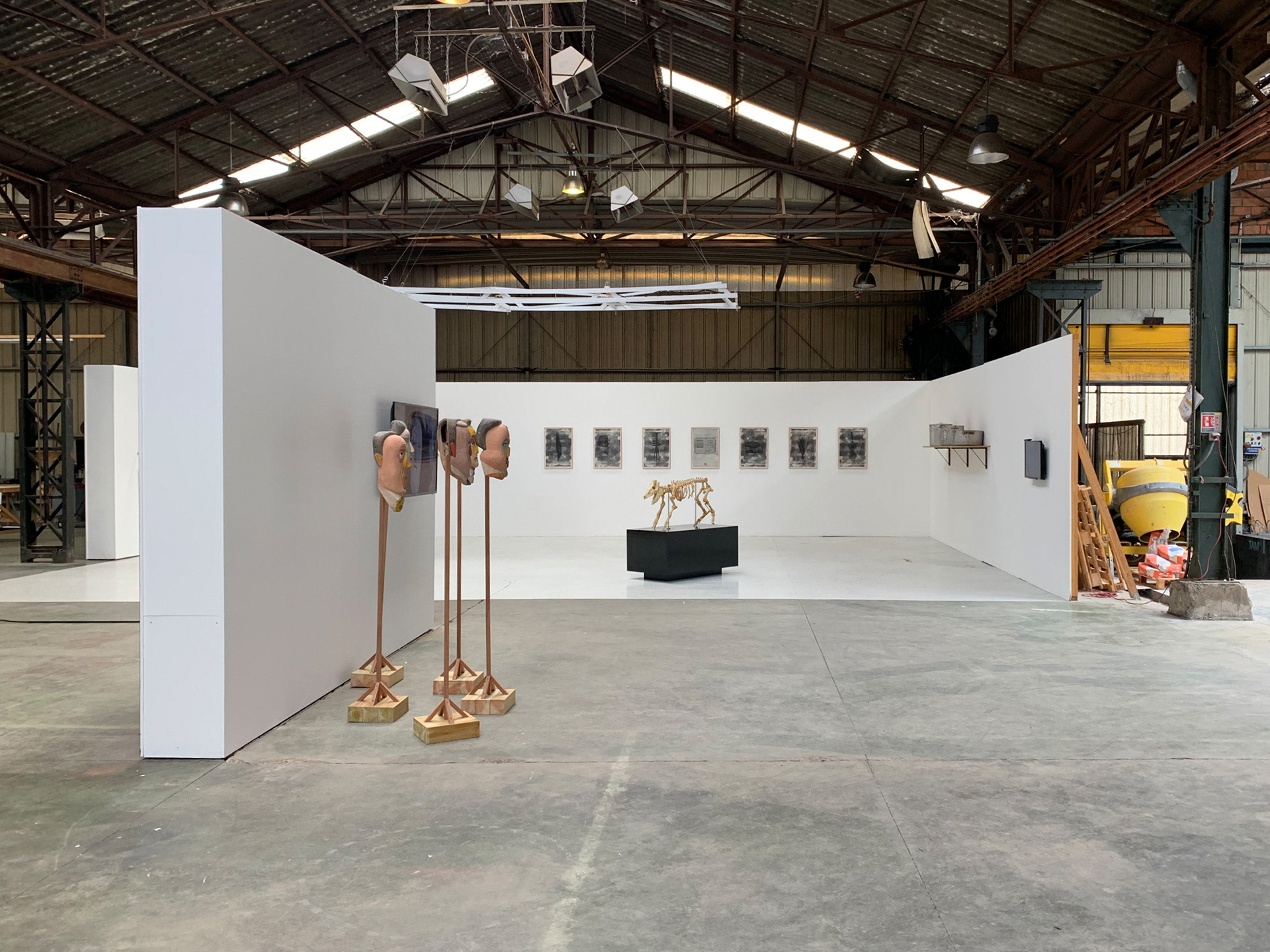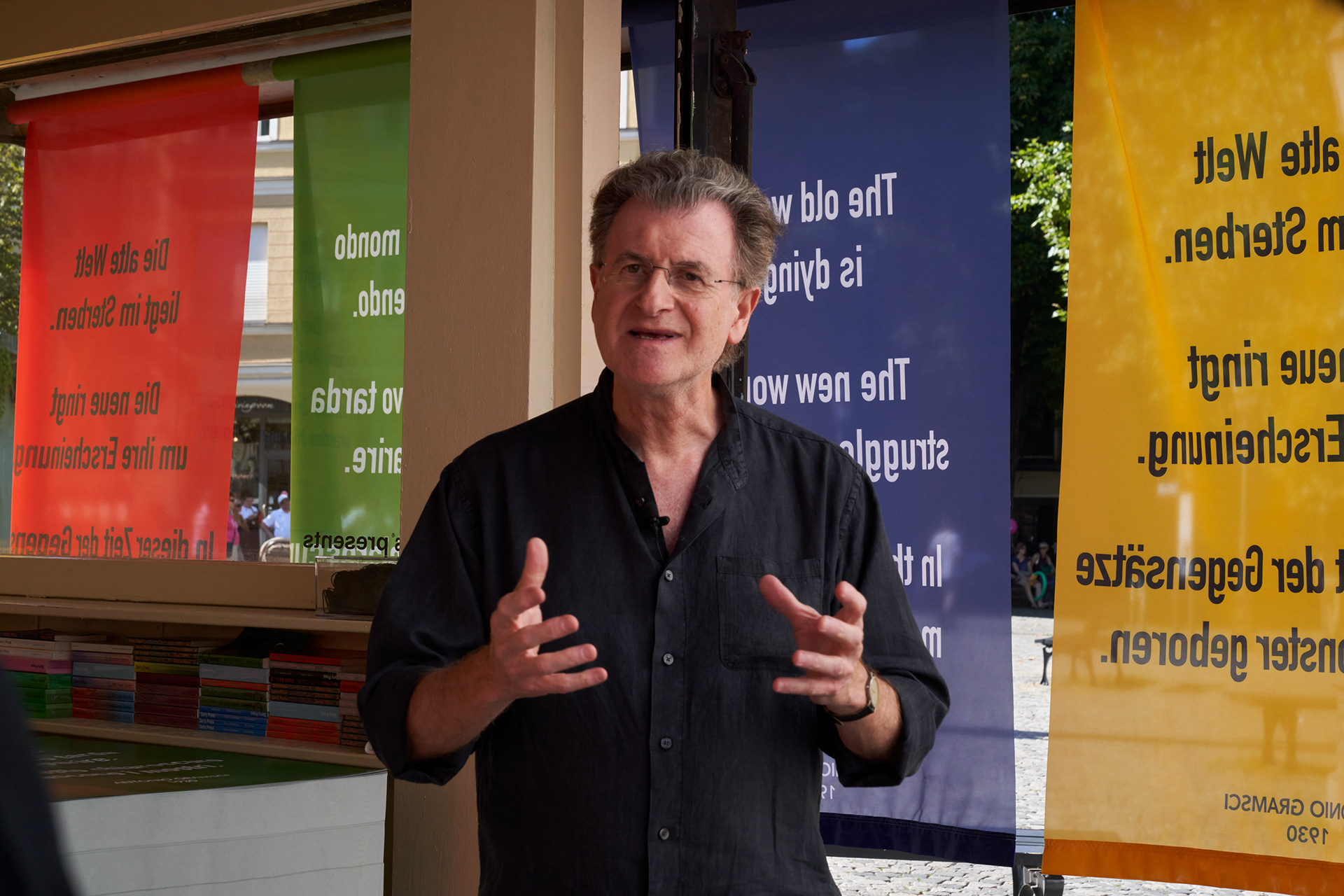
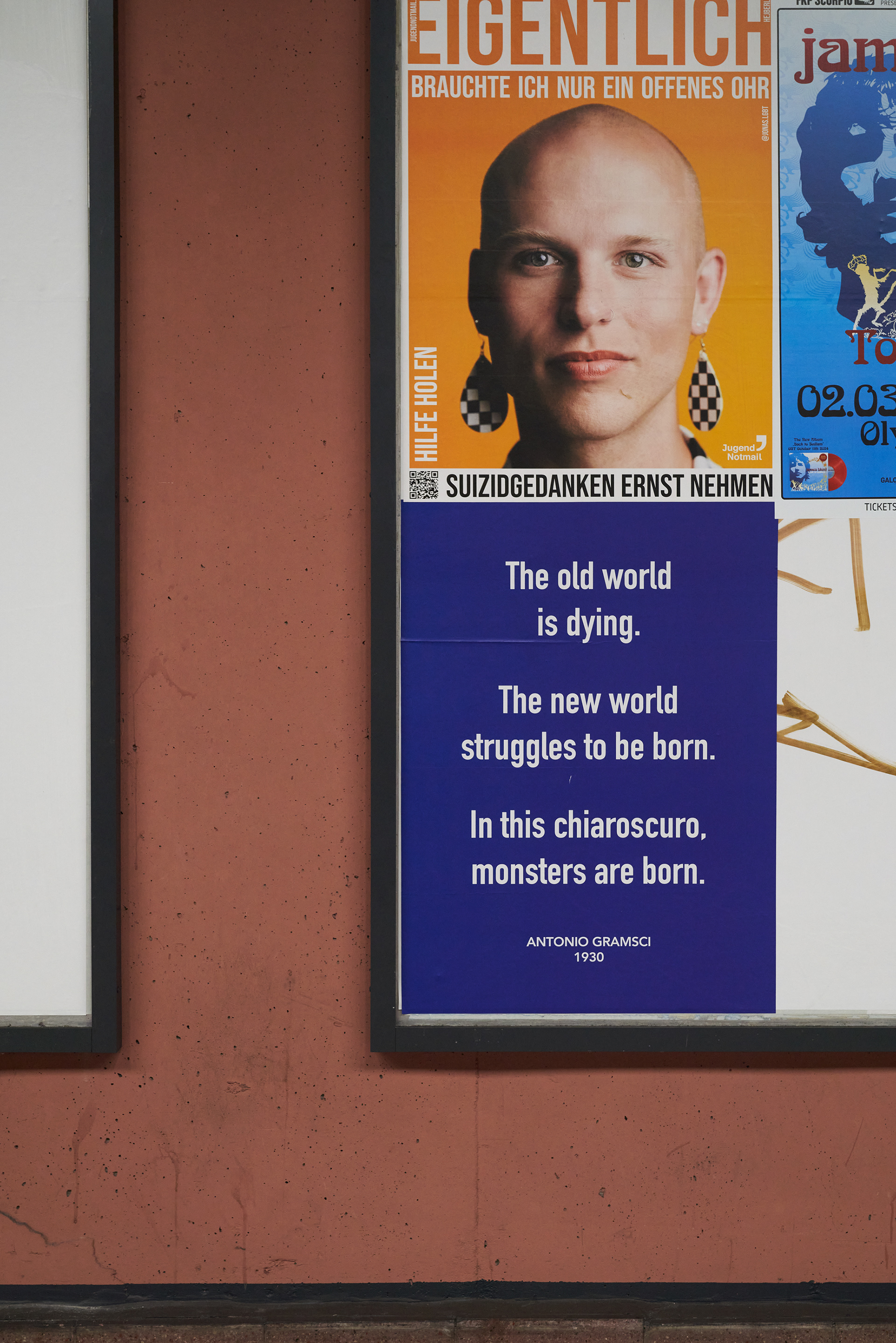
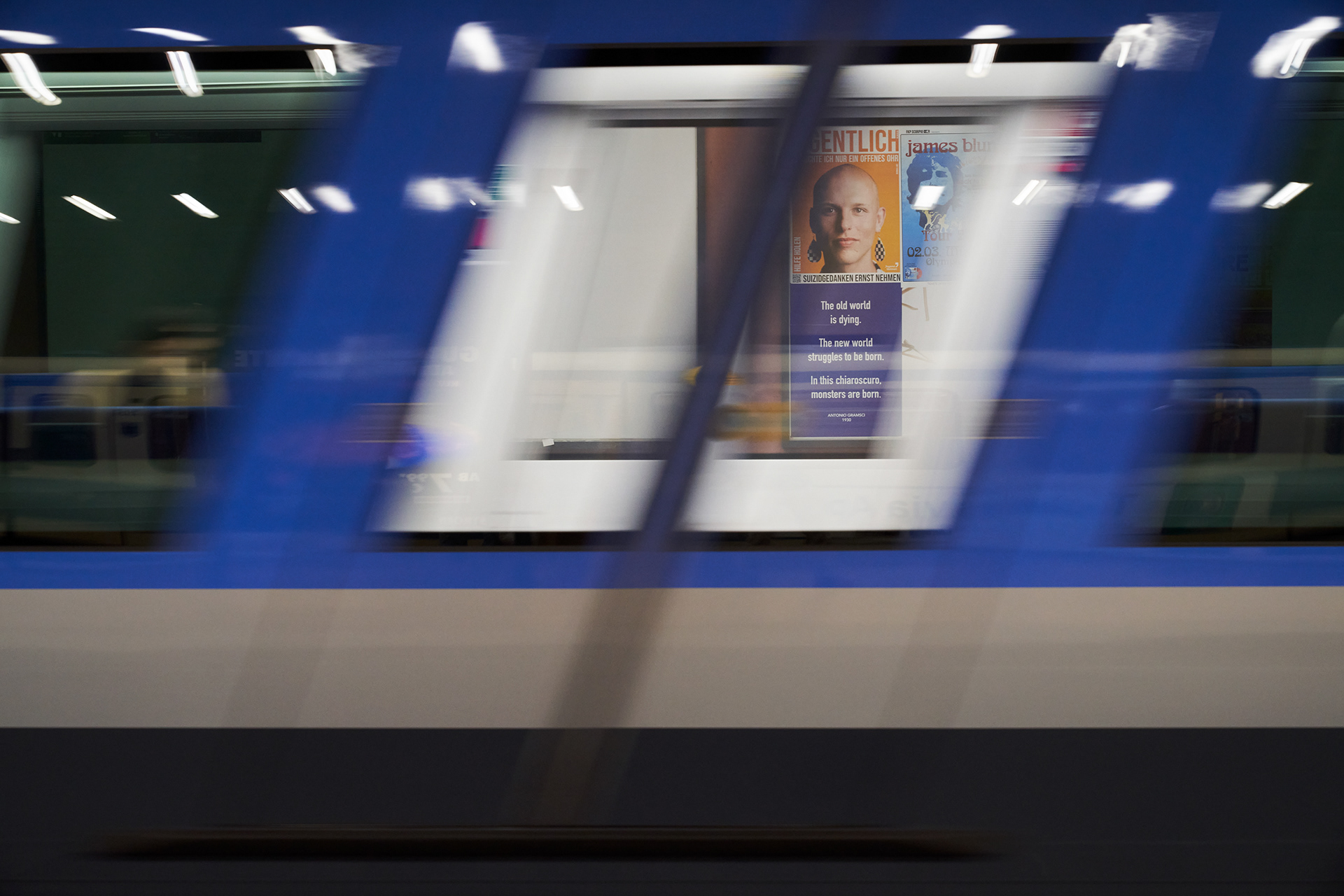
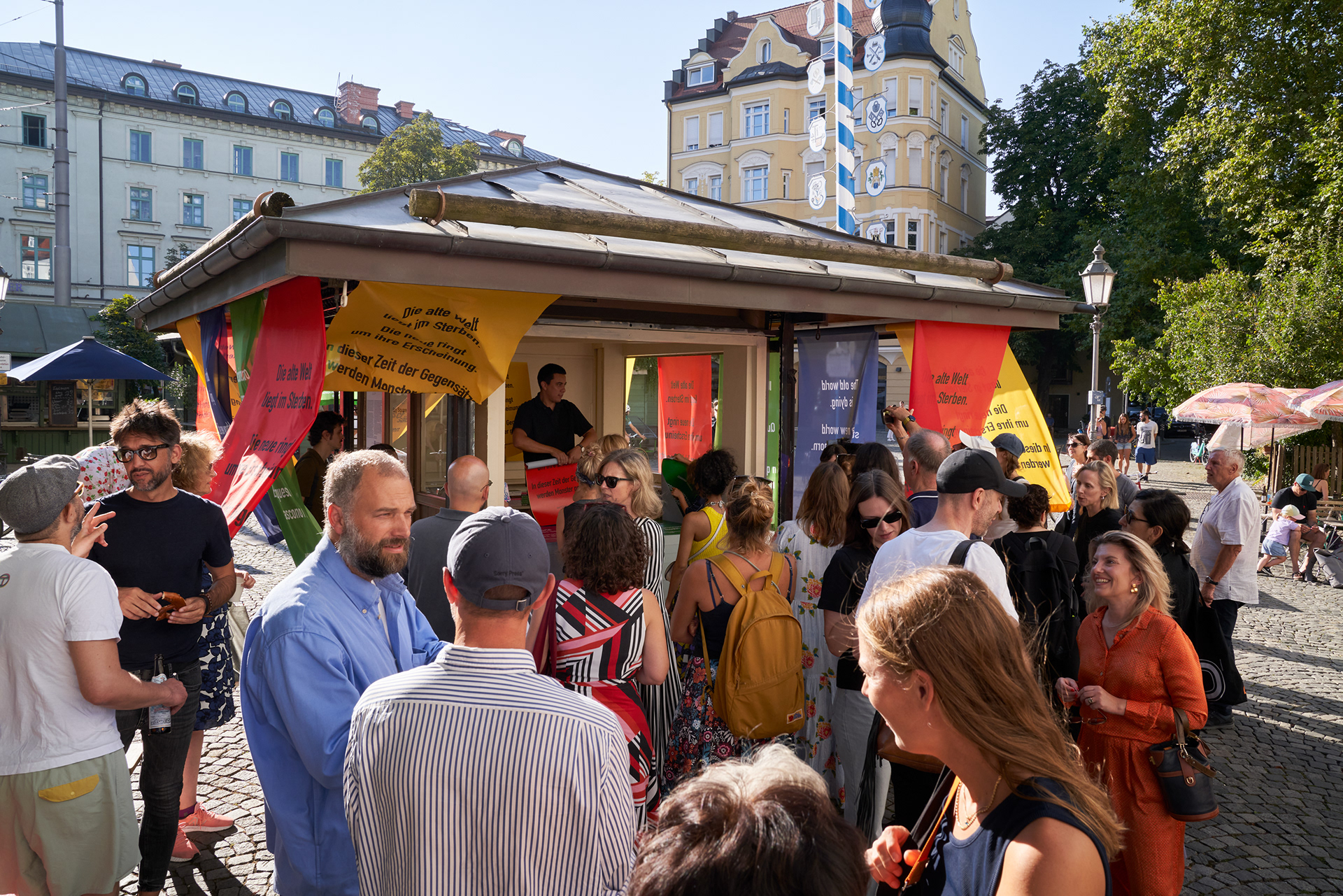
When we received the generous invitation by Salta art to curate an exhibition at the Sorry Square kiosk, the immediate thought that came to our minds and hearts was to present an intervention by the well-known Chilean artist Alfredo Jaar, who, despite his busy schedule with major art institutions, kindly accepted. This gesture undoubtedly reinforces Alfredo's genuine commitment to the arts and his critical spirit.
Alfredo Jaar has always been able to place us in a space of deep reflection through direct, poetic, and powerful gestures. Public space, governed by survival of the fittest, is, for him, the most impactful arena in which to unfold his subversive poetry. In his intervention from 1979, during Pinochet's dictatorship in Chile, Jaar bravely asked, using street posters and billboards: "Are you happy?” If you take a moment to place yourself in the shoes of a passerby, seeing these billboards in the midst of a cruel and authoritarian dictatorship, what would you feel? How do you speak of pain, persecution, fear, authoritarianism, and abuse without naming them? By directly aiming an arrow at the heart of each passerby who, upon seeing such a simple yet profound question, cannot help but grasp the spirit of liberation it carries. Are we happy? We still ask ourselves this today… In a world where civilians die daily in wars, where hundreds of migrants drown in a hostile sea, where xenophobic and racist discourses are articulated on a daily basis in the streets, the media, and social networks.
Given this proposal and setting (the kiosk, the public square, Munich, Germany, Europe), Jaar suggested presenting the work Chiaroscuro, using a quote from Italian political theorist Antonio Gramsci, written in prison in 1930 during Mussolini's dictatorship, in which the philosopher describes the rise of fascism at that time: "Il vecchio mondo sta morendo. Quello nuovo tarda a comparire. E in questo chiaroscuro nascono i mostri" (The old world is dying. The new world struggles to be born. In this chiaroscuro, monsters are born).
In the actual context in which we are living, as fascist ideas are returning to prominence, Alfredo Jaar confronts us with this phrase and prompts us to reflect on a past that is becoming our present. Can we be happy in a world where we allow hatred and division to emerge? As John Berger once wrote: “Gramsci believed in hope rather than promises, and hope is a long affair.”
